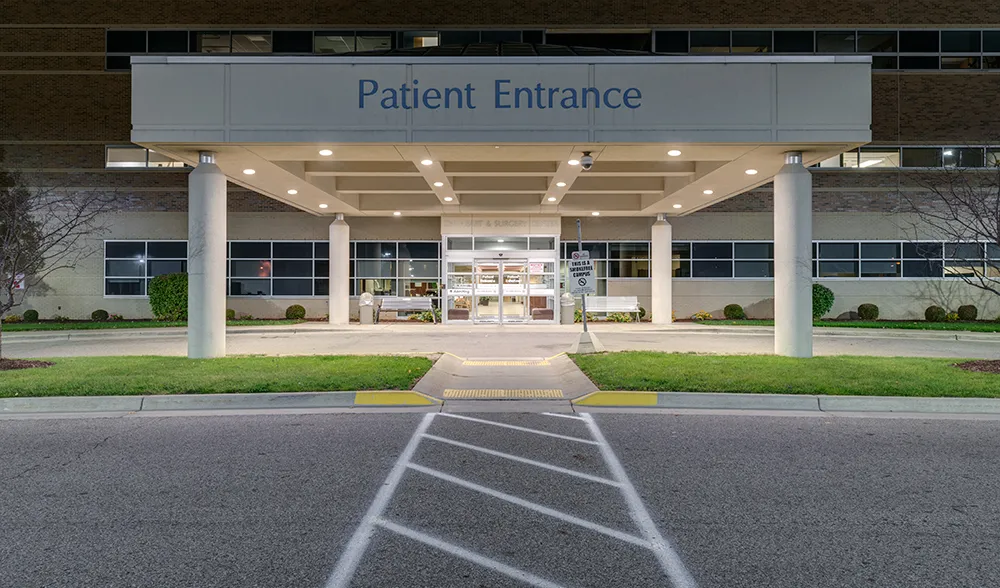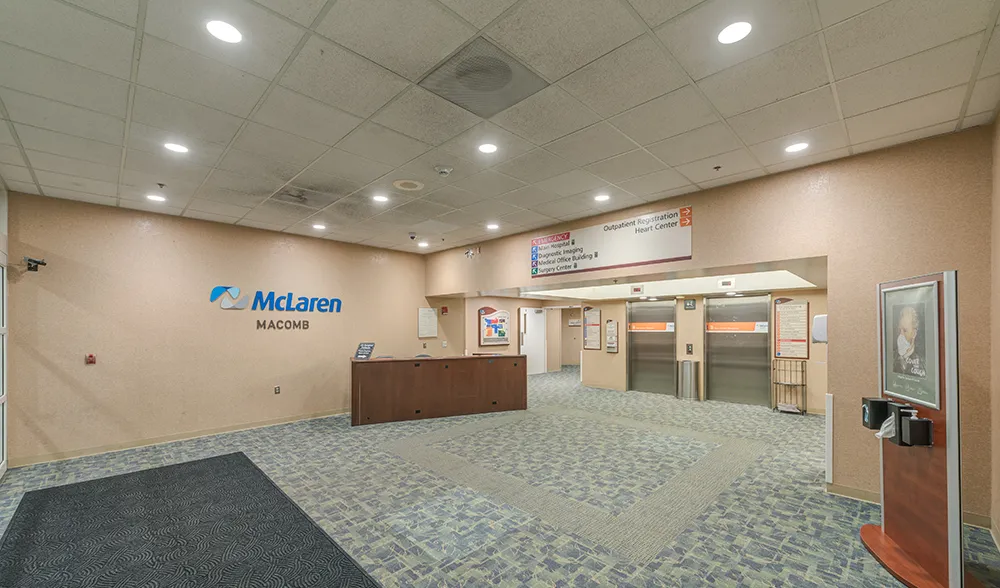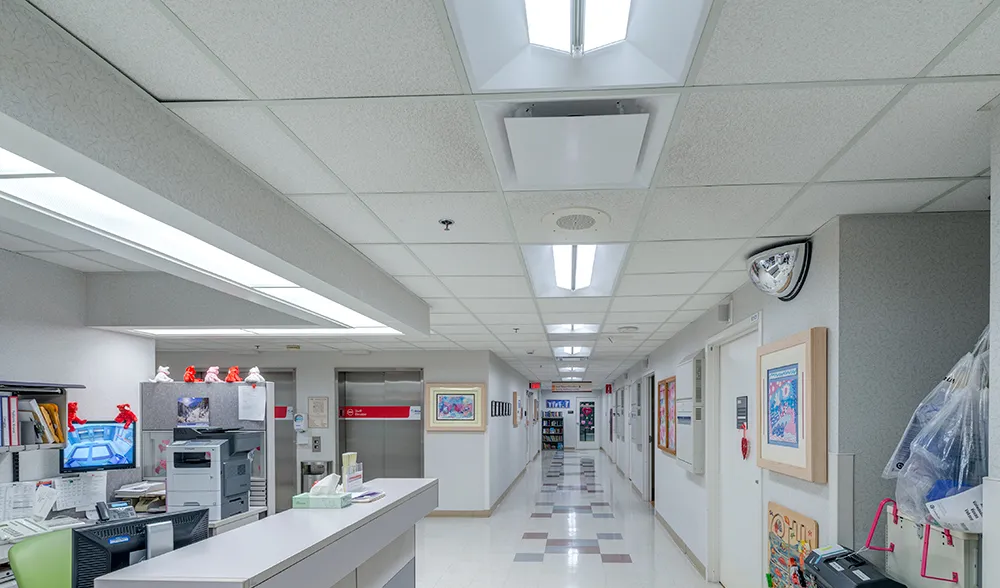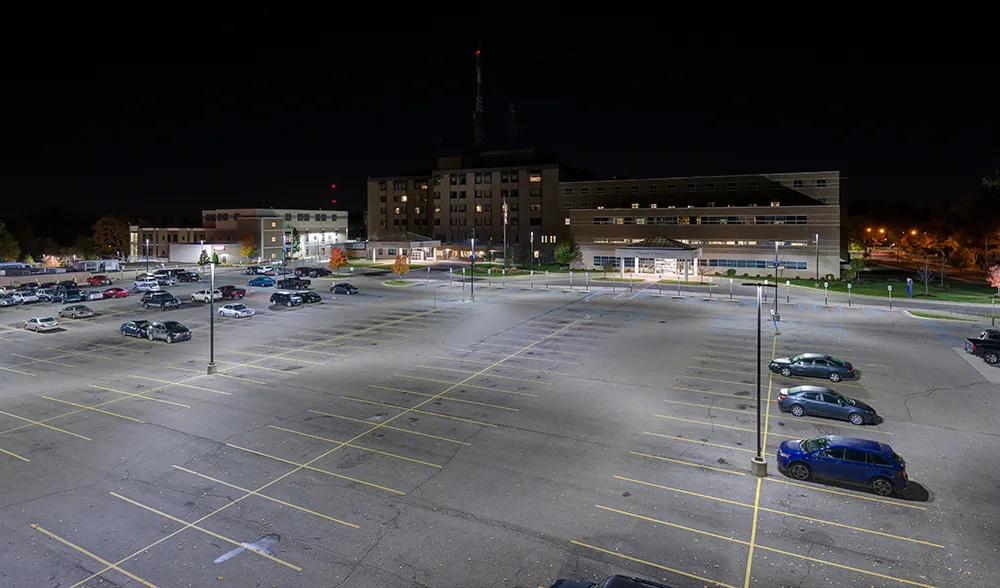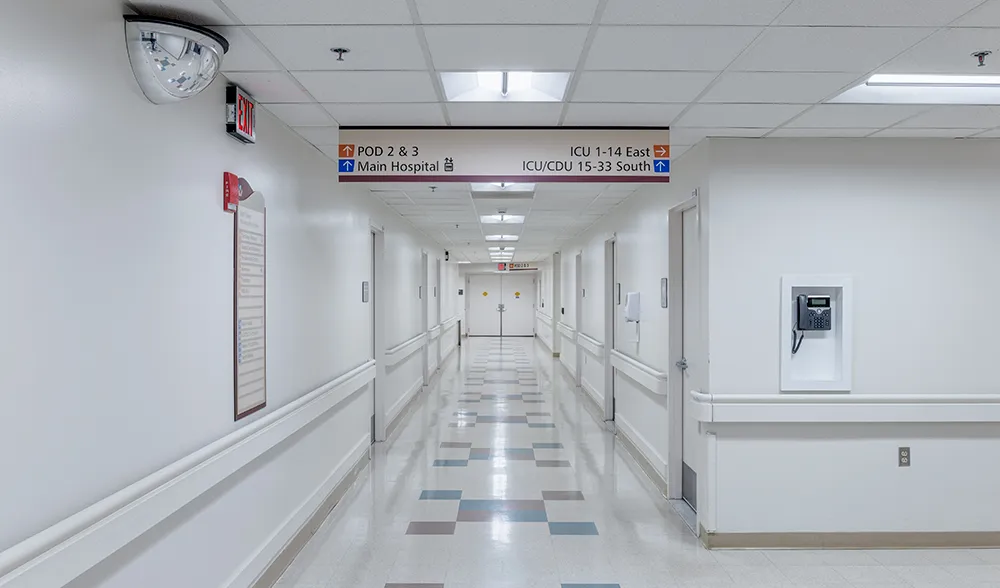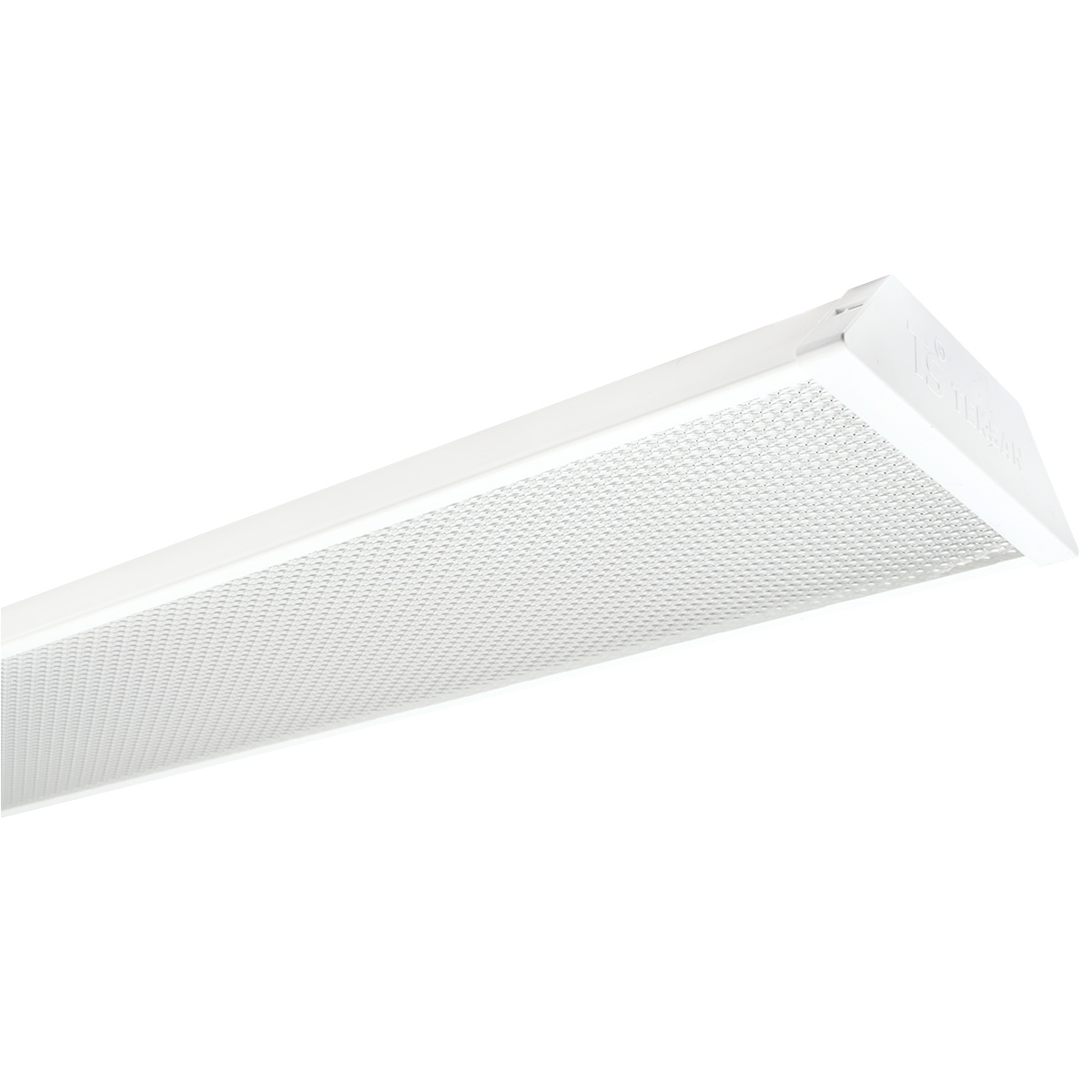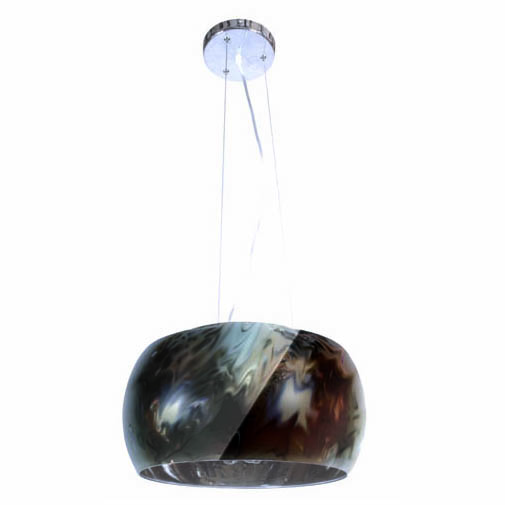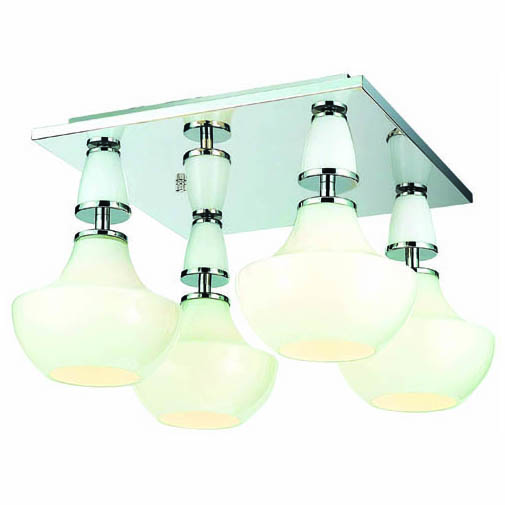For McLaren Health Care, a system-wide upgrade to Cree hospital LED lighting yields warm inviting light that promotes comfort and security while delivering $1.6 million in annual savings.
Project
About The Project
Timing Is Everything
When Keith Miller first heard about LED lighting nearly a decade ago, he was Facilities Director at McLaren Macomb Hospital in Mt. Clemens, Michigan. Miller figured it was a development worth watching—but simply too costly and not yet proven.
Fast forward to the present: Now Corporate Facilities Manager for the entire 3,096-bed McLaren Health Care system, Miller recently completed a sweeping LED lighting initiative that replaced nearly every exterior and interior light across 11 primary hospitals with 25,000 Cree® LED fixtures, including over 12,000 Cree SmartCast® intelligent lighting fixtures. The transformation is estimated to save McLaren Health Care $1.6 million annually, with a payback of 3.7 years*—with $1.25 million of that coming in the form of energy cost savings alone.
It’s only half the story, too. Almost as compelling as the cost savings is the potential for Cree’s innovative lighting solutions to help bolster staff productivity, enhance patient experiences and brand appeal, and reduce their carbon footprint, all while helping to increase the safety and security of their facilities. All are mission-critical factors to McLaren Health Care’s top priority: providing a sustainable first-rate patient experience.
What Changed in Seven Years?
Almost everything. Hospital systems like McLaren are quickly seeking new ways to meet the extreme challenges of an industry in the midst of disruptive change and under growing financial pressure. Meanwhile, recent years have seen big improvements in LED technology, energy efficiency, light quality, flexibility and costs—many pioneered or commercialized by Cree.
Systematic lighting upgrades like McLaren’s are not only smart economics. These initiatives also provide a visionary competitive strategy to effectively capitalize on substantial patient-centric benefits while making a highly visible statement of corporate commitment to sustainability.
The Challenge: Delivering Better Healthcare Value That Satisfies
McLaren Health Care’s mission is clear and concise: to “be the best value in health care as defined by quality outcomes and cost.” Founded in 1914, McLaren’s subsidiaries span a 53-county service area with 6.5 million residents and stretch from the suburbs of Detroit northward for 200 miles to Petoskey and Cheboygan. The nonprofit system employs 22,500 people, counts 43,993 network providers, and has annual revenues approaching $4 billion.
Beyond Michigan, the nationwide rise of healthcare consumerism and emerging financial pressures loom large. In a 2016 report published by the American Hospital Association and ASHE, 80% of hospital CEOs said that by 2021, they expect patients will comparison shop the patient experience rating of hospitals before choosing a provider, and 84% said they expect at least 10% of hospital reimbursement will depend on patient satisfaction (Source: SHSMD and ACHE Release Futurescan 2016-2021: Healthcare Trends and Implications, January 2016, SHSMD/ASHE). That same year, a Yale University study cited that the healthcare sector, which consumes enormous amounts of energy to run 24/7, contributes 8% of the nation’s greenhouse gas emissions, emitting more than the entire United Kingdom (Source: Environmental and Health Impacts of U.S. Healthcare System, June 2016, YaleNews).
Cost-efficient, sustainable delivery of an excellent patient experience has become mission-critical to nearly every system, with many now looking for ways to make the most of what they already have and to maximize their return on new investment. It’s no surprise, then, that McLaren Health Care, a leader in its field, is intensely focused on improving anything and everything they can measure—from treatment costs and clinical outcomes to patient satisfaction, community benefit, safety and security, efficiency and sustainability.
Testing the Waters
By 2014, LED lighting was squarely on Miller’s radar. Every day brought more reports of dramatic energy savings and improved illumination from LED fixtures that were virtually maintenance free for ten, fifteen, even twenty years. LED lighting technology had improved by leaps and bounds in energy efficiency, lighting quality and fixture cost.
Miller decided it was time for a pilot project. Working with Future Energy Group, a full-service energy solutions provider based in Sterling Heights, Michigan, he facilitated upgrading McLaren Macomb’s surface lots and parking structure to LED lighting. “We saved money and our facilities got safer in the process,” Miller observes.
When he was promoted to Corporate Facilities Manager for the entire McLaren Health Care system, Miller saw the perfect opportunity to scale those cost benefits system-wide while also enhancing the staff and patient experience, safety and security, and sustainability. He went back to Future Energy Group with a bold plan: What would it take to upgrade McLaren’s 11 primary hospitals to 100% LED lighting?
Evidence-Based Persuasion
“Keith had a very clear vision,” says Michael Abraham, Jr., Co-Founder and President, Future Energy Group. “He understood the ROI—with a corporate-wide upgrade, he saw the opportunity for economies of scale and standardization, cost savings, and having better lighting throughout all the facilities, putting themselves in a leadership position among healthcare organizations.”
The first step was to analyze the data and select the best solution. Abraham recalls that from the start, both he and Miller were attracted to the company that had commercialized LED lighting in the first place and continued to drive the industry forward: Cree.
While price and ROI was a top priority, so was long-term utility and peace of mind. Cree’s cutting-edge technology and 10-year warranty answered both concerns. “There are a lot of companies out there that can supply LED lights, but they don’t do the research and development that Cree does,” Miller says. “Cheaper is not necessarily better and Cree backs the products they put out there.”
Cree’s flexibility also impressed. “They even considered designing something specifically for McLaren if needed,” says Sam DiNello, Co-Founder and Vice President, Future Energy Group. “How many manufacturers would do that?”
Images
Project Images
Products
Products Used In The Project

